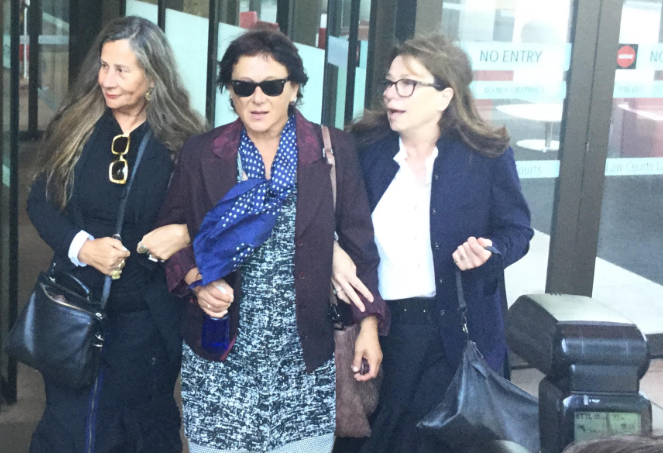Rush’s King Lear co-star dismisses ‘gutter’ Telegraph, as director denies ‘creepy’ reference
The actress who played one of Geoffrey Rush’s fictional daughters in King Lear has clashed with the barrister of The Daily Telegraph in tetchy exchanges during which she rejected any notion that Rush had acted inappropriately.

Australian film producer Robyn Kershaw, left, actress Helen Buday, centre, and Rush’s wife Jane Menelaus leave court after the fourth day of the defamation trial at Sydney Federal Court
On the fourth afternoon of the defamation action brought by Rush against the Telegraph, Helen Buday, who played Goneril in the Sydney Theatre Company production of the Shakespeare play, interrupted Tom Blackburn SC on several occasions as he asked questions.
She also twice burst into song and was reluctant to leave the witness stand at the end of a drama-filled day.

